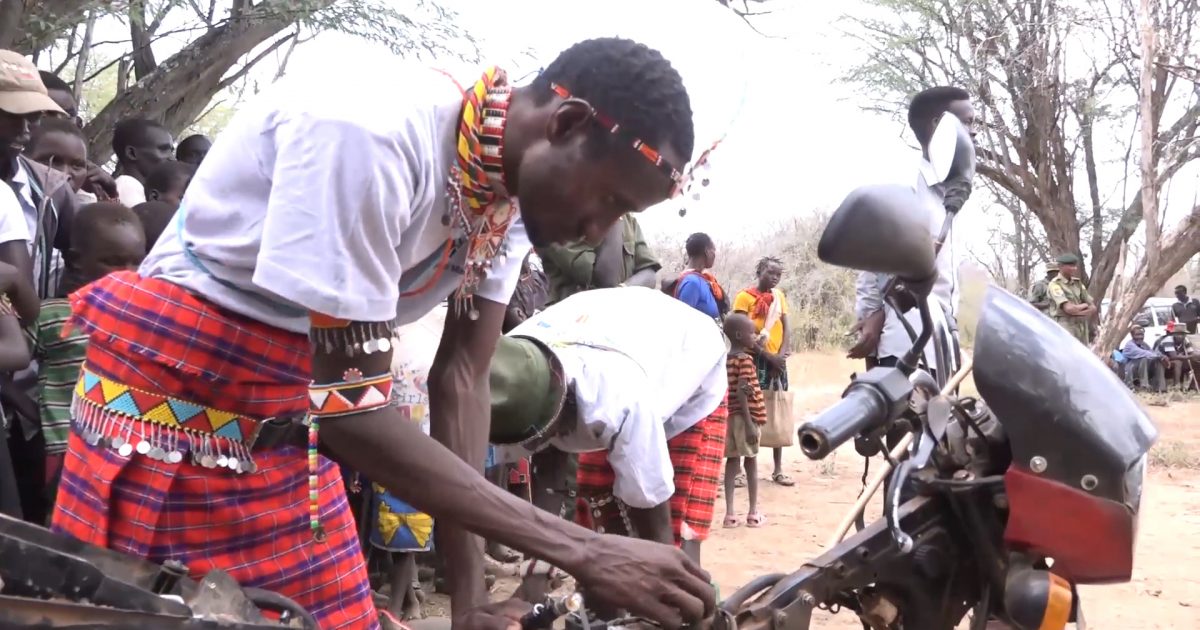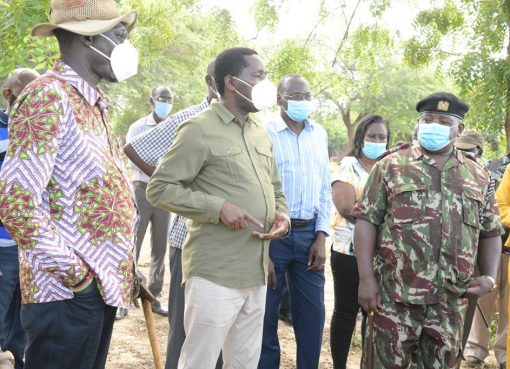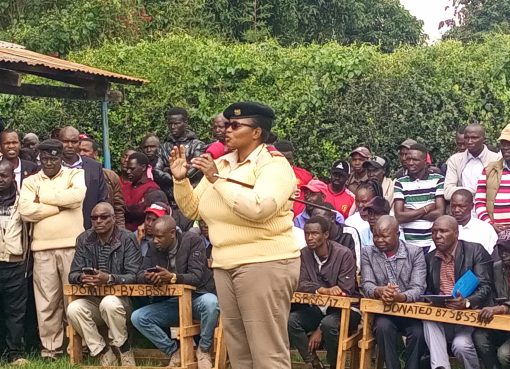For decades, members of pastoral communities have solely relied on livestock, which frequently has sparked off conflicts over water and pasture, as well as cattle rustling.
James Lepaktore, a Samburu moran has witnessed several cattle raids and on three occasions, narrowly cheated death.
In 2017 his parents were gunned down by armed bandits. In his own words he has lost count of the number of his village mates who have been killed in fierce fire exchanges.
Gratefully, 24 year old Lepaktore is among 59 pastoralists from Laikipia and Baringo counties who for the past four months have been equipped with new skills, which are reducing their dependence on livestock.
Through an initiative by the Northern Rangelands Trust (NRT), in partnership with the State Department for Technical and Vocational Education and Training (TVETs) and county governments the pastoralists have been trained on hairdressing, carpentry, repairing motor bikes and phones, plumbing, building using blocks, solar installations and electrical engineering and welding.
Known as Ujuzi Manyattani, the programme involves tutors from Technical and Vocational Education and Training Institutions (TVETs) operated by the national and county governments and religious bodies.
The vocational mobile training programme funded by the Swedish Embassy under the Imara Programme Consortium targets disadvantaged persons and young men and women with no formal education in an effort to enable them diversify their livelihoods and reduce overreliance on pastoralism, which is under threat due to prolonged drought and climate change.
Lepaktore, who confesses that he has never set foot in a classroom, is elated after being handed a motorcycle repair certificate during a graduation ceremony at Ruko Sanctuary in Baringo County and indicates that the skills he has acquired were now providing him with a steady source of income.
Unlike herding which exposes one’s life to risks in the grazing fields, he says the motorcycle repair job has brought him satisfaction and peace of mind. He earns between Sh800 and Sh1,500 daily from his job at Olmoran Center in Laikipia County.
With no other people doing similar business in his locality and the fact that locals were previously hiring mechanics from Nyahururu, more than 200 kilometres away, gives him an added advantage.
He vows that once he gets married and has children, he will ensure that they get educated so that they do not engage in retrogressive practices.
“I am so happy that I have also acquired a tool box and other repair tools,” Lepaktore offers.
He intends to further his studies into vehicle repair and expand his business to offer job opportunities to local youths. All the 59 graduates were given work tool kits as an incentive to enable them start businesses.
National Industrial Training Authority (NITA) Director General Stephen Ogenga separately gave an undertaking that they will establish mobile assessment centres for nomadic certification under the Ujuzi Manyattani programme.
“We are working on designing a model for nomadic assessment and certification for the programme so that the trainees, after finishing the courses, are assessed and given national certificates,” he said.
According to NRT Programmes Officer Mr. Peter Anguno, they started the programme after realizing that there were so many jobless young men among pastoralist communities who needed to be pre-occupied with some income generation skills.
He says that vocational training is one of the best interventions to unemployment and poverty which attracts morans into crime, saying they could only be addressed through education and skills empowerment.
“This training model is compatible with the lives of people living in arid and semi-arid areas because they can learn without interfering with their lives. We are also incorporating training for girls who are not in school as a result of early marriages, teenage pregnancies among other reasons. There is a need for creative solutions to cattle rustling,” he adds.
Noting that technical colleges admit only those with secondary school education, thereby locking out the morans, Mr Anguno observes that the project is a step in the right direction since it has shown that the morans can be taught skills even without formal education.
The programme is also being undertaken in Samburu, Turkana, Isiolo, West Pokot, Elgeyo Marakwet and Marsabit counties.
Mr. Anguno indicates that over 500 youths have graduated since 2019 and that the programme targets to train 5,000 young people by 2025.
“Besides empowering communities, we are enabling them have various alternatives to grasp available economic opportunities,” says Mr. Anguno.
For Faith Muge from Komolion Village in Baringo, the excitement about tailoring skills she has learnt is palpable.
“If we get vocational training right, we will be able to reduce crime, cattle rustling and highway banditry in the North rift and other restive regions. The morans will have no time to engage in crime,” the 25 year old notes.
Ms Muge adds, “My family used to rely only on selling livestock, but this training has broadened our income base,” adding that in a good week, she can make up to Sh4,000.
She says most locals in pastoralist communities do not know any other life apart from the one founded by cattle rearing and adds that a wealthy person is the one with the highest number of cattle, whether acquired through legal or illegal means.
Among the graduates is a Class Eight leaver, the 25 year old Faith Lomeri, from Chepskin village in Baringo who was married off aged 18 years and had no opportunity to continue with her education.
“I will immediately start a tailoring business to earn income and support my family. Women need to be educated not married off,” she says after receiving a sewing machine.
She observes that there is also a shortage of role models in these areas who can influence the locals positively, as their educated and enlightened folks migrate to nearby towns like Nakuru, Kitale and Eldoret, as soon as they are able to, in search of civilization and safe spaces to raise their families, as well as escape the harsh realities of home.
Mr. Kipng’etuk Kibor a resident of Kasiela village who graduated with motorcycle repair and maintenance course notes that the programme is also promoting cohesion among diverse communities integrated into it.
“We also used to steal livestock from other communities but we have stopped that to concentrate on our businesses. This project is helping us integrate with other communities because we work together. For instance, some of the Njemps and Tugens who graduated earlier from Ujuzi Manyattani are doing jobs side by side at various trading centres in Baringo County,” reveals Mr. Kibor.
Unlike before, he states, rustling has been commercialized and is now being used as a conduit for rogue traders to make a killing from the pastoralists’ woes, with communities stealing from each other to satisfy demand for livestock sought by middlemen.
By Anne Mwale and Dennis Rasto





